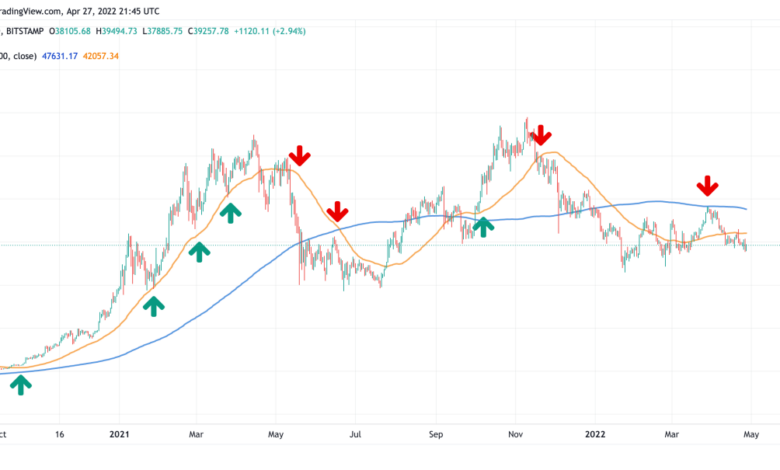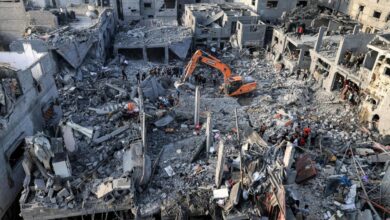
Taiwan is trying to learn from the wars in Gaza and Ukraine
Taiwan is trying to learn from the wars in Gaza and Ukraine. It’s a sobering thought, isn’t it? The island nation, facing its own unique geopolitical challenges, is keenly studying the brutal conflicts in both Gaza and Ukraine, seeking crucial lessons in military strategy, cyber warfare, international relations, and civilian resilience. This isn’t just about military hardware; it’s about understanding the complex interplay of factors that determine the outcome of modern warfare and how to best prepare for a potential conflict.
From analyzing the effectiveness of asymmetric warfare tactics employed by Hamas in Gaza to examining Ukraine’s experience with Russian cyberattacks and disinformation campaigns, Taiwan is meticulously assessing its own vulnerabilities and strengths. The international response to both conflicts – the varying levels of support, the geopolitical maneuvering, and the long-term consequences – also provide invaluable insights for Taiwan’s strategic planning.
Ultimately, Taiwan’s goal is to build a robust defense strategy, both military and civilian, that can withstand potential aggression while minimizing the devastating impact on its people and economy.
Taiwan’s Military Preparedness and the Lessons from Gaza and Ukraine
Taiwan, acutely aware of the ongoing conflicts in Gaza and Ukraine, is undertaking a crucial reassessment of its defense strategy. The experiences of both nations offer stark, albeit contrasting, lessons regarding asymmetric warfare, technological superiority, and the importance of robust national defense. Analyzing these conflicts allows Taiwan to identify potential vulnerabilities and strengthen its preparedness for a potential invasion.
Comparison of Taiwan’s Military Capabilities with Pre-Invasion Ukraine
Before the Russian invasion, Ukraine possessed a relatively large, but poorly equipped, military. While numerically stronger than Taiwan’s armed forces, Ukraine lacked the advanced weaponry and integrated air defense systems that Taiwan is currently investing in. Taiwan, on the other hand, benefits from a more technologically advanced military, particularly in terms of its air force and navy, possessing a robust arsenal of anti-ship missiles and advanced fighter jets.
Taiwan’s studying the brutal realities of the Gaza and Ukraine conflicts, trying to glean lessons for its own defense. It’s a stark contrast to the news coming out of Thailand, where the release of photos of the King and his official mistress, as reported on this site , caused a royal website crash. The focus on internal power dynamics highlights how vastly different geopolitical situations can be, even within the same region, further emphasizing the complexities Taiwan faces in its security assessments.
However, Taiwan’s military is significantly smaller than Ukraine’s was, meaning its capacity for prolonged ground warfare is a potential weakness. A key difference lies in the level of foreign military support; Ukraine received extensive assistance, whereas Taiwan’s access to such support remains uncertain, though the US has committed to its defense.
The Impact of Asymmetric Warfare Tactics on Taiwan’s Defense Strategy
The effectiveness of Hamas’s asymmetric warfare tactics in Gaza highlights the vulnerability of even technologically superior militaries to unconventional attacks. The use of tunnels, drones, and swarms of low-cost, readily available weapons demonstrates the need for Taiwan to bolster its defenses against similar tactics. This necessitates improvements in intelligence gathering, early warning systems, and the development of counter-drone technologies.
Taiwan must also focus on defending against potential cyberattacks and information warfare, as these can cripple critical infrastructure and undermine morale. Furthermore, the experience of Gaza underscores the importance of robust civilian defense and preparedness.
Taiwan’s studying the brutal realities of the Gaza and Ukraine conflicts, desperately seeking lessons in asymmetric warfare and civilian protection. This focus on effective defense strategies feels particularly relevant given the increasingly polarized political climate, even in places like Arizona, where, as reported by republican prosecutor wins maricopa county da race , the recent election results highlight a growing divide.
Ultimately, Taiwan’s strategic analysis hinges on understanding how to safeguard its population in the face of potential aggression.
Hypothetical Conflict Scenario: A Taiwan Invasion
Imagine a scenario where a hypothetical aggressor launches a multi-pronged attack on Taiwan, mirroring elements of both the Russian invasion of Ukraine and the Hamas assault on Gaza. The aggressor employs a combination of conventional military force, including naval and air attacks targeting military bases and infrastructure, alongside cyberattacks and information warfare to sow chaos and confusion. Simultaneously, smaller, more agile units, potentially utilizing asymmetric tactics like drone swarms and infiltration via sea, attempt to disrupt Taiwanese defenses and seize key locations.
Taiwan’s studying the brutal realities of the Gaza and Ukraine conflicts, desperately seeking lessons in asymmetric warfare and resilience. This heightened focus on defense underscores the precarious geopolitical situation, further highlighting why, as this article explains, investors should still avoid Chinese stocks: why investors should still avoid chinese stocks. The instability in the region, fueled by China’s aggressive posturing, makes Taiwan’s careful analysis of these conflicts even more crucial for its future security.
This scenario necessitates a multi-layered defense strategy for Taiwan, encompassing robust air and missile defense systems, effective cyber warfare capabilities, and well-trained ground forces prepared for both conventional and unconventional combat. The successful defense would rely on strong international support and the ability to leverage Taiwan’s technological advantages while mitigating its numerical disadvantages.
Effectiveness of Defense Systems: Gaza, Ukraine, and Taiwan
| System Type | Effectiveness | Applicability to Taiwan | Challenges to Implementation |
|---|---|---|---|
| Iron Dome (Israel) | Highly effective against short-range rockets | Highly applicable; could protect against potential missile attacks | High cost; requires advanced technology and maintenance |
| Javelin Anti-Tank Missile (Ukraine) | Effective against armored vehicles | Applicable; could be used against amphibious landings | Requires training and sufficient supply; vulnerable to countermeasures |
| Bayraktar TB2 Drone (Ukraine) | Effective for reconnaissance and precision strikes | Applicable; could be used for surveillance and targeted attacks | Vulnerable to anti-drone systems; range limitations |
| Tunnel Detection Systems (Gaza) | Varied effectiveness; depends on technology and implementation | Applicable; crucial for detecting infiltration attempts | High cost; requires extensive underground mapping and ongoing maintenance |
International Relations and Geopolitical Implications
The starkly different international responses to the conflicts in Gaza and Ukraine highlight the complex interplay of geopolitical factors, power dynamics, and national interests that shape global reactions to armed conflict. Understanding these differences is crucial for assessing potential scenarios involving Taiwan, a strategically vital island nation caught in the crosshairs of great power competition. The varying levels of international condemnation, military aid, and economic sanctions demonstrate how the perceived legitimacy of a conflict, the identities of the belligerents, and the potential global ramifications significantly influence the international community’s actions.The international community’s response to the conflict in Ukraine was swift and largely unified in condemning Russia’s aggression.
This was fueled by several factors, including Ukraine’s perceived adherence to international norms, the potential for wider European conflict, and the perceived threat to the existing global order. In contrast, the international response to the ongoing conflict in Gaza has been far more fragmented, often hampered by differing perspectives on the historical context, the role of Hamas, and the humanitarian crisis.
This disparity underscores the significant impact of geopolitical considerations on shaping international responses to conflict.
Comparison of International Responses to Gaza and Ukraine Conflicts and their Relevance to Taiwan
The disparity in international responses to the conflicts in Gaza and Ukraine offers valuable, albeit complex, lessons for Taiwan. Ukraine’s relatively unified international support stemmed from its perceived victimhood, Russia’s clear act of aggression, and the broader implications for European security. This contrasts sharply with the fragmented response to the Gaza conflict, where the historical context, the nature of Hamas’ actions, and the involvement of multiple regional actors have led to a less cohesive international stance.
For Taiwan, this suggests that securing broad international support would necessitate a clear narrative emphasizing self-defense against aggression, and fostering strong alliances with nations that share its democratic values and strategic interests. A demonstrable commitment to international law and norms will also be crucial in garnering international sympathy and support.
Potential Roles of International Actors in a Hypothetical Taiwan Conflict
A hypothetical conflict involving Taiwan would likely see the United States playing a pivotal role, given its longstanding commitment to Taiwan’s defense and its strategic interests in the region. China’s role would be equally significant, as it considers Taiwan a breakaway province and has repeatedly asserted its intention to achieve unification, by force if necessary. Other regional powers, such as Japan, South Korea, and Australia, would likely be involved to varying degrees, depending on the scale and nature of the conflict and their own strategic assessments.
The actions of these nations, their level of support for Taiwan, and the potential for wider regional conflict would heavily influence the outcome. The EU’s stance would also be significant, reflecting the global impact of such a conflict and the extent of its economic and political ties to both China and Taiwan.
Potential Alliances and Partnerships for Taiwan
Drawing lessons from the international responses to Gaza and Ukraine, Taiwan should prioritize building and strengthening alliances with countries that share its democratic values and strategic interests. This includes solidifying its relationship with the United States and forging closer ties with other like-minded democracies in the Indo-Pacific region and beyond. The focus should be on cultivating strong defense partnerships, fostering economic interdependence, and engaging in robust diplomatic initiatives to counter Chinese narratives and secure broad international support.
The experience of Ukraine highlights the importance of pre-emptive diplomacy and building international coalitions before a conflict erupts. Taiwan needs to continue strengthening its international standing through active participation in international organizations and building strong relationships with key actors globally.
Timeline Comparing Key Events in Gaza and Ukraine Conflicts and International Actions
| Date | Event | Location | Impact |
|---|---|---|---|
| February 24, 2022 | Russia invades Ukraine | Ukraine | Widespread international condemnation; significant military and humanitarian aid to Ukraine; unprecedented sanctions against Russia. |
| October 7, 2023 | Hamas launches large-scale attack on Israel | Gaza Strip and Israel | International condemnation of Hamas’ actions; significant humanitarian crisis in Gaza; divided international response regarding Israeli actions and the ongoing conflict. |
| March 2022 | International Criminal Court launches investigation into alleged war crimes in Ukraine | The Hague | Increased pressure on Russia; potential for future accountability. |
| Ongoing | International efforts to provide humanitarian aid to Gaza | Gaza Strip | Significant aid provided by various organizations, but access remains challenging. |
Economic and Societal Impacts: Taiwan Is Trying To Learn From The Wars In Gaza And Ukraine
The conflicts in Gaza and Ukraine offer stark, albeit different, lessons on the long-term economic and societal consequences of protracted warfare. Understanding these impacts is crucial for Taiwan, given its strategic position and globally integrated economy. A conflict involving Taiwan would likely trigger cascading effects far beyond its borders, demanding proactive strategies for mitigation and recovery.The long-term economic and societal impacts of the conflicts in Gaza and Ukraine differ significantly due to the scale and nature of the conflicts, as well as the pre-existing economic and societal conditions in each region.
Ukraine’s economy, while less globally integrated than Taiwan’s, experienced immediate and devastating impacts from the invasion, including widespread destruction of infrastructure, displacement of millions, and disruption of supply chains. Gaza, on the other hand, has suffered from a protracted blockade and repeated conflicts, resulting in chronic economic hardship, high unemployment, and limited access to essential services. The cumulative effect of these factors has created a humanitarian crisis with long-lasting societal implications.
Economic Consequences of a Taiwan Conflict, Taiwan is trying to learn from the wars in gaza and ukraine
A conflict involving Taiwan would have catastrophic economic consequences, given its role as a global hub for semiconductor manufacturing and its significant trade relationships. The disruption of semiconductor supply chains would have a ripple effect across numerous industries globally, leading to shortages, price increases, and potentially a global recession. The destruction of Taiwanese infrastructure and businesses would directly impact its economy, leading to job losses, reduced productivity, and a decline in overall GDP.
The scale of the economic disruption would likely surpass that seen in Ukraine, given Taiwan’s pivotal role in the global economy. Similar to the effects seen in Ukraine, the conflict would likely trigger a massive outflow of capital and investment, further exacerbating the economic downturn. We can look at the global impact of the 2022 Russian invasion of Ukraine, where energy prices skyrocketed and supply chains were severely disrupted, as a possible, albeit less severe, example of what could happen in the event of a Taiwan conflict.
Societal Impacts Mitigation Strategies
Drawing lessons from Gaza and Ukraine, Taiwan can implement strategies to mitigate the potential societal impacts of a conflict. These include strengthening social safety nets, investing in disaster preparedness and response capabilities, and fostering community resilience. Ukraine’s experience highlights the importance of rapid evacuation and resettlement programs for displaced populations, while Gaza’s experience underscores the need for long-term support for vulnerable communities, including access to healthcare, education, and psychosocial services.
A robust civil defense system, including early warning systems and emergency shelters, is crucial, mirroring the importance of such systems in both Ukraine and, to a lesser extent, Gaza. Furthermore, fostering social cohesion and national unity through transparent communication and community engagement can help mitigate the societal divisions and trauma that often accompany conflict.
Potential Post-Conflict Scenarios for Taiwan
A post-conflict scenario for Taiwan could unfold in several ways, depending on the nature and outcome of the conflict. A positive scenario could involve a swift resolution with minimal infrastructure damage, allowing for rapid economic recovery and reconstruction. This scenario would necessitate strong international support, similar to the Marshall Plan after World War II, to rebuild infrastructure and stimulate economic growth.
However, a more pessimistic scenario could involve extensive damage to infrastructure, significant loss of life, and protracted economic instability. This scenario might mirror the long-term challenges faced by Gaza, characterized by ongoing political instability and economic hardship. The level of international support, the effectiveness of post-conflict reconstruction efforts, and the political stability that follows the conflict will all play a significant role in shaping the long-term outcome.
The rebuilding process could take years or even decades, requiring significant investment and international cooperation. A key factor would be the degree of societal healing and reconciliation, which, as seen in both Ukraine and Gaza, is a protracted and complex process.
The lessons Taiwan draws from the conflicts in Gaza and Ukraine will shape its future for years to come. The analysis isn’t simply about replicating strategies; it’s about adapting them to Taiwan’s unique circumstances, understanding its own strengths and weaknesses, and fostering international partnerships to bolster its security. The stakes are incredibly high, and the careful study of these conflicts offers a crucial window into how Taiwan can best prepare for the challenges ahead, ensuring the safety and well-being of its citizens.




